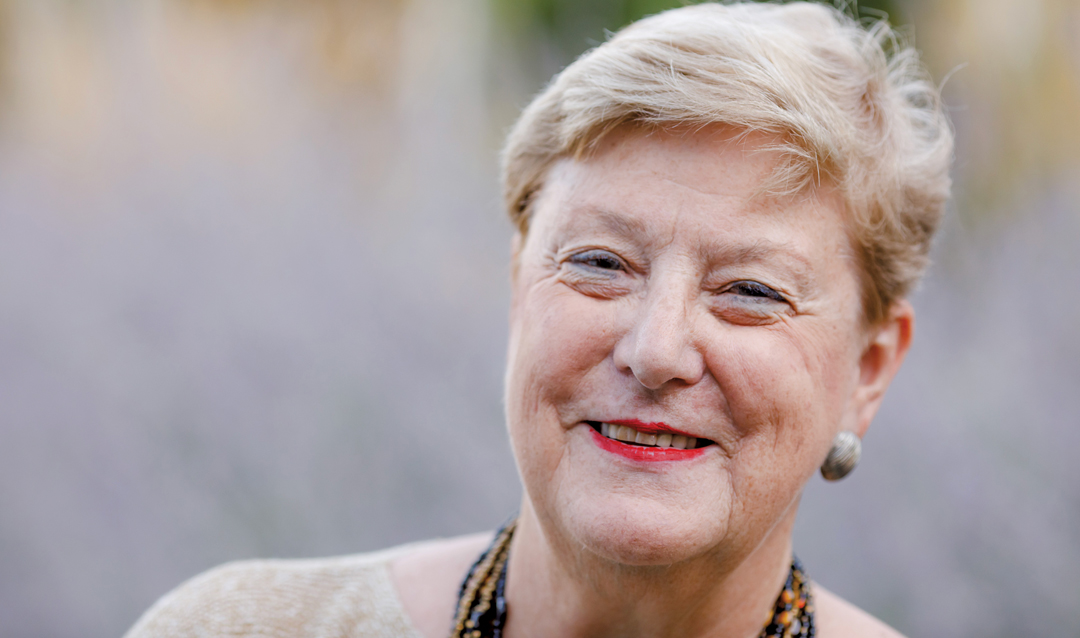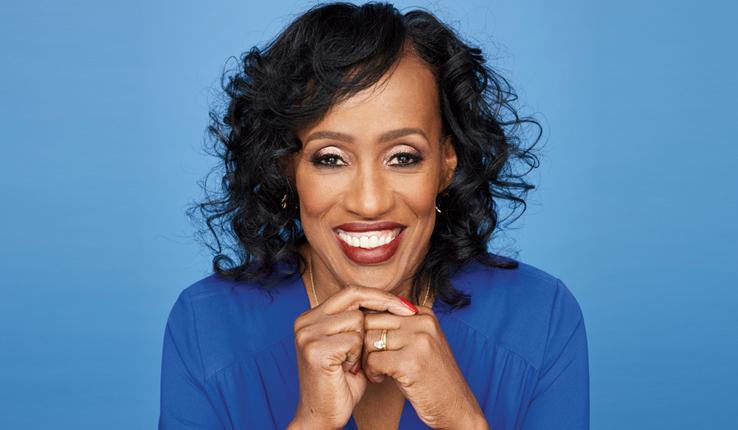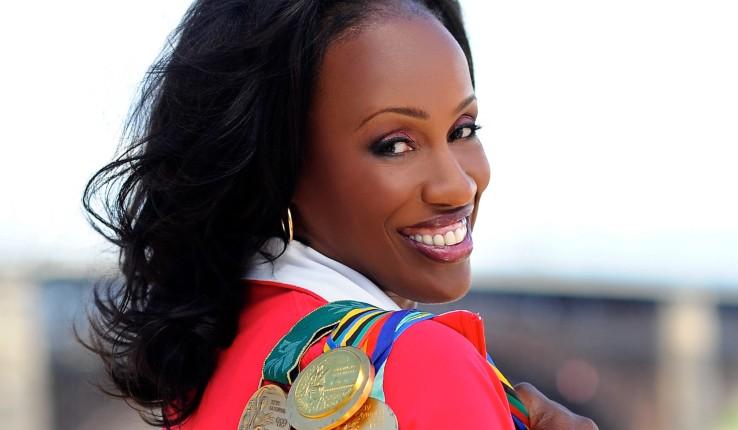In a milestone moment at The Rally in August, you led Lehigh’s first coed class, the Class of 1975, as it adopted the incoming Class of 2025. It was the first time a woman presented a class with its class flag. What were you feeling?
I really did not expect to be so moved by the procession of flags and the adoption process. While we were gathering in the Clayton University Center parking area and representatives of the various classes were obtaining their flags, I really had a sense of the history and traditions of Lehigh. Since Lehigh has been coed for 50 years, I wasn’t sure that the first-year class would appreciate the significance of having a woman “adopter.” However, those of us at The Rally from the years before and during Lehigh’s change to a coeducational university clearly appreciated the significance, and it was an honor for me to help kick off the year of celebrations for “Soaring Together” by being the first woman to represent a 50-year class in adopting a first-year class.
With a woman at the forefront for the first time, what message do you hope was conveyed to the incoming class?
That Lehigh is diverse, somewhat, and inclusive. That women are here to stay. I mentioned in my comments at The Rally that we didn’t know when we enrolled that we were an experiment, until our junior year.
You had a trailblazing career with Price Waterhouse (now PricewaterhouseCoopers), as the first woman audit partner in its New York office. How did your time at Lehigh prepare you?
Certainly wonderfully—nothing could have prepared me better. The fundamentals of my education, the accounting program, is very strong at Lehigh, and I was very well prepared from that perspective. All the accountants who came from Lehigh hit the ground running in whatever they did. And Price Waterhouse was coed compared to Lehigh. There weren’t that many women, but there were certainly more than there were in my classes. I was used to speaking up for myself, which I probably didn’t do much before I went to Lehigh. You learned how to. You got a lot of negative attention sometimes, but you could turn that around to positive attention also.
The last 50 years brought much change to Lehigh, and much notably due to coeducation. What stands out for you, and what do you see for the future?
The positive change has been multi-faceted. When I was on the Board of Trustees, we had a meeting with women leaders and one of the things that we gleaned was the importance of making The Hill coeducational, because it was all the guys in the fraternities on The Hill and everybody else below. The fraternity system is strong, and I hope it continues, but I enjoy the fact that there are more diverse living arrangements with the new houses and other places like that. There’s more geographic dispersion of the incoming classes, which is great. … I think that women have brought a lot of strength to the colleges. Lehigh has broadened its offerings also. I see Lehigh continuing along that path. The new College of Health is a great idea, and some of the things that [former President] John Simon did, in not just doing incremental change but in thinking bigger, are important. Lehigh has positioned itself well for the future, and I hope to see more inclusion, more diversity and continued strength in what has made Lehigh successful.





